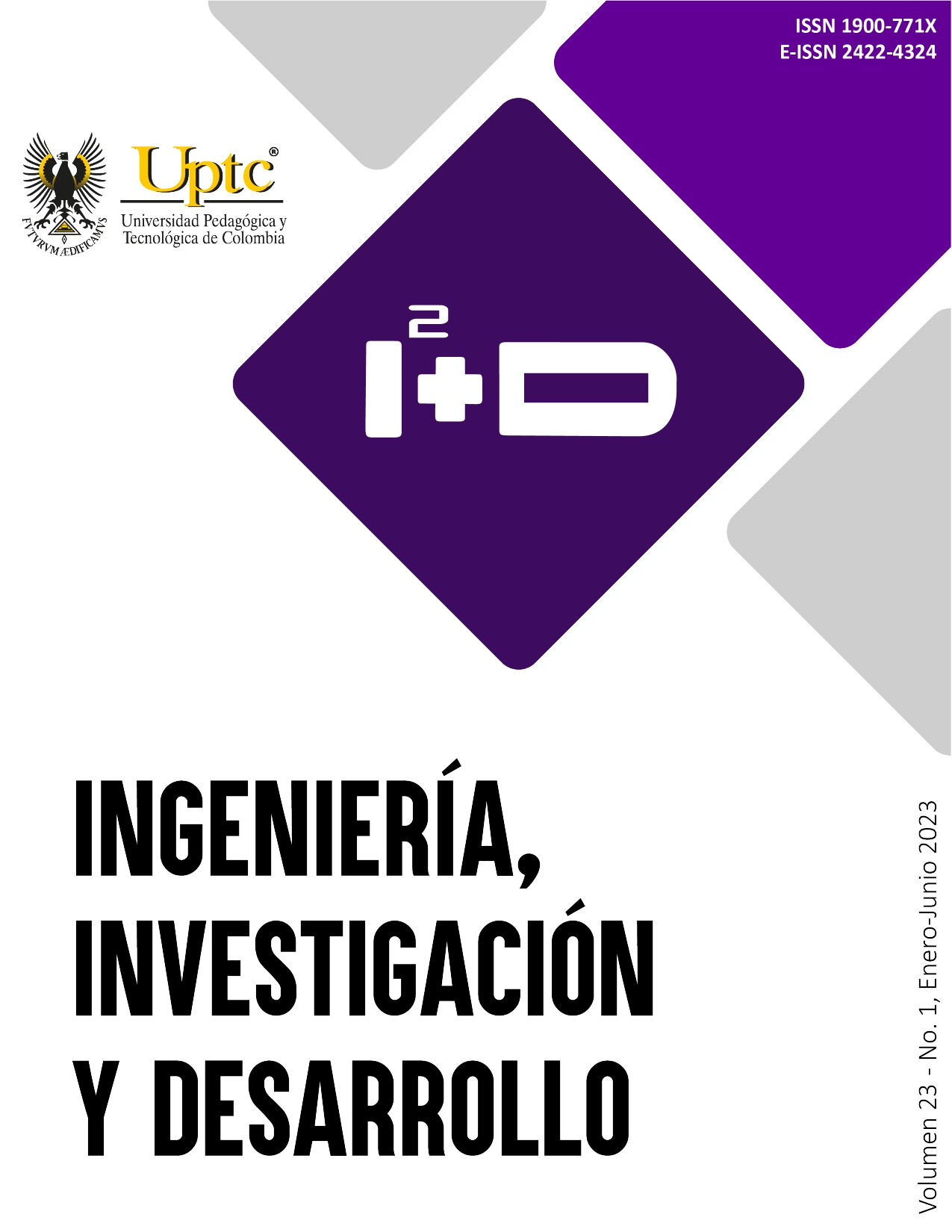INCREASED EFFICIENCY IN MASSIVE TRANSPORT SYSTEMS BY PROGRAMMING SPEED PROFILES BETWEEN SEGMENTS

Abstract
This study aimed to estimate the specific energy consumption in massive metro-type transport systems, with the aim of guiding the identification of projects aimed at increasing energy efficiency. To achieve the above purposes, this research focused on the estimation, through a software application, of the specific consumption of electrical energy. Results of simulations carried out with an application developed in MATLAB, to generate speed profiles in the operation of the train, allow to observe the sensitivity of the specific consumption of electrical energy to changes made in the cruising speed and in the acceleration and deceleration ramps. The results show that the specific consumptions depend to a large extent on the speed profiles and the operation of the metro, which opens an interesting field of application of optimization techniques aimed at the efficient use of energy.
Keywords
acceleration, cruising speed, energy consumption, metro system, specific energy
References
- A. González-Gil, R. Palacin, P. Batty and J. P. Powell, “A systems approach to reduce urban rail energy consumption”,Energy Conversion and Management, vol. 80, pp. 509–524, April 2014. Accessed November 10, 2022. [Online]. Available: https://doi.org/10.1016/j.enconman.2014.01.060
- Y. Gao, L. Yang and Z. Gao, “Energy consumption and travel time analysis for metro lines with express/local mode”, Transportation Research Part D: Transport and Environment, vol. 60, pp. 7–27, May 2018. Accessed November 10, 2022. [Online]. Available: https://doi.org/10.1016/j.trd.2016.10.009
- D. Gattuso and A. Restuccia, “A Tool for Railway Transport Cost Evaluation”, Procedia - Social and Behavioral Sciences, vol. 111, pp. 549–558, february 2014. Accessed November 10, 2022. [Online]. Available: https://doi.org/10.1016/j.sbspro.2014.01.088
- M. Dominguez, A. Fernandez-Cardador, A. P. Cucala and R. R. Pecharroman, “Energy Savings in Metropolitan Railway Substations Through Regenerative Energy Recovery and Optimal Design of ATO Speed Profiles”, IEEE Transactions on Automation Science and Engineering, vol. 9, n. º 3, pp. 496–504, July 2012. Accessed November 10,
- [Online]. Available: https://doi.org/10.1109/tase.2012.2201148
- S. Su, T. Tang, and Y. Wang, “Evaluation of strategies to reducing traction energy consumption of metro
- systems using an optimal train control simulation model”, Energies, vol. 9, no. 2, pp. 105-124, 2016. DOI: https://doi.org/10.3390/en9020105
- W. Yuan, and C. Frei, “Potential for metro rail energy savings via eco-driving”, Applied Energy, vol. 268, pp. 114-124, 2020. DOI: https://doi.org/10.1016/j.apenergy.2020.114944
- A. García and M.P. Martín, Metodología de cálculo del consumo de energía de los trenes de viajeros y actuaciones en el diseño del material rodante para su reducción, Monografías ElecRail/5, Fundación de los Ferrocarriles Españoles, 2012
- Z. Tian, P. Weston, N. Zhao, S. Hillmansen, C. Roberts, and L. Chen, “System energy optimization strategies
- for metros with regeneration”, Transportation research Part C: Emerging technologies, vol. 75, pp. 120-135, 2017. DOI: https://doi.org/10.1016/j.trc.2016.12.004
- J. A. Castaño, A. E. Diez, and D.P. Giraldo, “Análisis del consumo energético de un sistema de transporte público de pasajeros con tracción eléctrica desde una perspectiva sistémica”, Información tecnológica, vol. 29, no. 1, pp. 147-160, 2018. DOI: https://doi.org/10.4067/S0718-07642018000100147
- F. Gbologah, R. Guensler, Y. Xu, and M. Rodgers, “Demonstrating a bottom-up framework for evaluating energy and emissions performance of electric rail transit options”, Transportation research record: Journal of the transportation research board, vol. 2428, no. 1, pp. 10-17, 2012. DOI: https://doi.org/10.3141/2428-02
- I. Villalba, and P. Salvador, “An energy-efficient metro speed profiles for energy savings application to the Valencia Metro”, Transportation research procedia, vol. 18, pp. 226-238, 2016. DOI: https://doi.org/10.1016/j.trpro.2016.12.031
- C. Sumpavakup, T. Ratniyomchai, and T. Kulworawanichchpong, “Optimal energy saving in DC railway system with on-board energy storage system by using peak demand cutting strategy”, Journal of modern transportation, vol. 25, no. 4, pp. 223-235, 2017. DOI: https://doi.org/10.1007/s40534-017-0146-6
- J. Wang, and H.A. Rakha, “Electric train energy consumption modeling”, Applied energy, vol. 193,
- pp. 346-355, 2017. DOI. https://doi.org/10.1016/j.apenergy.2017.02.058
- M. Khodaparastan, A.A. Mohamed, and W. Brandauer, “Recuperation of regenerative braking energy in electric rail transit systems”, IEEE Transactions on intelligent transportations systems, vol. 20, no. 8, pp. 2831-2847, 2019. DOI: https://doi.org/10.1109/TITS.2018.2886809